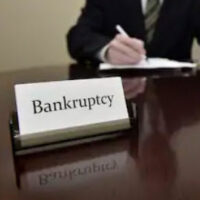Why File a Chapter 13 When Individuals Can File a Chapter 11?

When you hear about Chapter 11 bankruptcy, you probably think of it being an excellent option for businesses. And it is – except it’s not just for businesses. It can also be an avenue to help individuals in certain situations, and Chapter 11 is not limited solely to corporate or business bankruptcies. So why file for Chapter 11 bankruptcy and how does it compare to a Chapter 13?
When Chapter 11 May Be an Option
Chapter 11 may be used by individuals who have a lot of debt—more than the maximum that is allowed under Chapter 13, or when, for other reasons, a Chapter 13 just won’t work for someone.
Chapter 13 requires that someone have an income sufficient to make payments through the Chapter 13 plan. But Chapter 11 has no income requirement at all—in fact, even someone who has no income could file for and qualify for a Chapter 11, if that person were to have sufficient assets to satisfy creditors.
Loss of Flexibility
One drawback to a Chapter 11 is some loss of flexibility. In a chapter 13, the debtor is allowed to continue to use their bank accounts while making payments through the plan. But once a Chapter 11 is filed, those accounts must be closed, and new accounts must be opened in the name of the debtor-in-possession (DIP), who often is the person filing for Chapter 11 bankruptcy.
Additionally, the DIP will have to file regular reports on activities related to the bank accounts documenting what has been spent and any income received.
There are also quarterly payments that must be made to the trustee, of about $600 depending on the case and the debtor individual circumstances.
The Trustee’s Role
In a Chapter 13, the trustee acts as oversight. The trustee will review paperwork, ensure that creditors are being treated fairly, and make recommendations to the court such as whether or not to approve of your Chapter 13 plan. You, as the debtor, are simply that—a debtor.
But in a Chapter 13, the debtor becomes a fiduciary to the creditors. That means the debtor is technically operating his their finances or bank accounts for the benefit of the creditors. In other words, you are acting in a way to best preserve your assets for the protection of the creditors. The trustee performs more of an oversight role, as opposed to being an active participant.
Expenses Are More Allowable in a Chapter 11
In a Chapter 13 case, your expenses will be highly scrutinized. The trustee will not want to see payments for luxury goods, private school tuition, multiple properties, boats, or other such luxuries. But these tend to be more allowable in a Chapter 11 bankruptcy, even though creditors technically still have the right to object to them.
Call the West Palm Beach bankruptcy lawyers at Kelley Kaplan & Eller at 561-264-6850 to see if Chapter 11 bankruptcy is right for you.
Resource:
uscourts.gov/services-forms/bankruptcy/bankruptcy-basics/chapter-11-bankruptcy-basics



